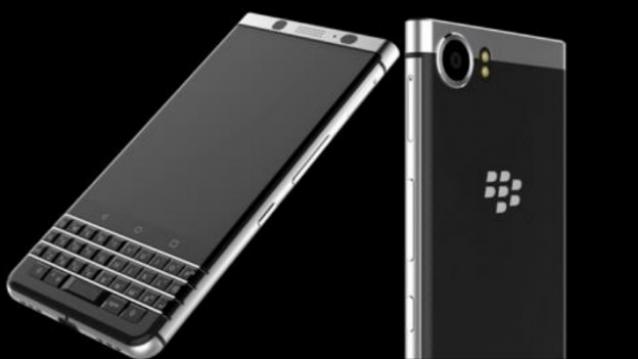Once upon a time, BlackBerry was considered as the smartphone of the business class. The iconic BlackBerry QWERTY keypad was perhaps the best physical keypad there was on a phone and it also came with tight security integration and end-to-end user data encryption, something that was not very common back in the old days.
It was also loved by many for BBM or BlackBerry Messenger, which was in a way the forefather of modern instant messaging services like WhatsApp and Apple's iMessage. Ask any 90s kid and they would say that owning a BlackBerry was like owning a supercar.
The rise of BlackBerry

The legend of BlackBerry started as Research in Motion (RIM), and its first product was the Interactive Pager 900 which was launched way back in 1996. But it was with the BlackBerry 850 Pager from 1999 that RIM started using the BlackBerry name.
The moniker was inspired by the device's keyboard which resembled the blackberry fruit. RIM continued its legacy with many series within the BlackBerry brand, the likes of the BlackBerry Curve, BlackBerry Bold, Torch and the BlackBerry Pearl. With the BB Bold being the top-of-the-line series targeted toward heavy users.
In the early to mid-2000s, if you had a BlackBerry, you were either a CEO of a big organisation or the president of a country. In fact, the former President of the United States Barack Obama loved the highly secure BlackBerry that he used both inside and outside the White House. It was the phone that everyone who wished for a high-tech handset wanted to have.
The fall of BlackBerry– arrival of the iPhone
But that was until the iPhone arrived in 2007. The whole idea of the smartphone changed with the arrival of the iPhone, and it spelt doom for Research in Motion (RIM) – the company behind the iconic BlackBerry brand.
Soon BlackBerry sales were plummeting beyond belief and from being the top-dog it was relegated to the bottom. BlackBerry sales were dropping every year, but it had a somewhat of a hold in markets like the US, Canada and the Middle East.
Android and subsequent partnership with TCL
However, the entry of the iPhone promoted Google to make Android OS better and smartphone manufacturers to make better phones with the touch-based user interface that was seen as more advanced when compared to the complicated BlackBerry OS. Android and iOS were gaining ground and iOS and in 2016 RIM decided to cease competing in the smartphone market directly and focus on making security software.
It was around this time that Chinese technology company TCL, a brand well known for its TVs, decided to own the license for the BlackBerry brand name and technology support agreement with BlackBerry Limited to make new BlackBerry smartphones. By this time, BlackBerry had also ditched its BlackBerry OS in favour of Android.
Under TCL's partnership BlackBerry made the DTEK50 and DTEK60 phones, and later the KEY series which includes the BlackBerry KEYone and KEY2 smartphones which had a reasonably sized touchscreen display and a signature BlackBerry keypad. These phones were designed and built by TCL and ran secure software by BlackBerry.
Is this the end of BlackBerry?
However, we may not see any more BlackBerrys being made, as TCL Communication's agreement contract ends this year.
BlackBerry in a thank you note to TCL has announced that its partnership with TCL will come to an abrupt end on August 31, 2020. This means that TCL will no longer have the rights to design, manufacture or sell BlackBerry-branded devices.
But, all is not lost for existing BlackBerry users as the company has assured that TCL will continue to provide support for BlackBerry's existing portfolio of phones, including customer service and warranty coverage until August 31, 2022 or for as long as local laws permit.
The legend lives on
Meanwhile, this isn't the end of BlackBerry as a company. The brand will continue to offer its enterprise services and continue to own QNX, a commercial real-time microkernel OS used in automotive applications. And it's possible that the legend of BlackBerry could rise from the dead if some other manufacturer decides to revive its smartphone division and that's what millions of BlackBerry fans are now hoping for. Until then, we will miss you, BB.









